

IPSA, APSA, ISC and ISA gather for the “Nation States at Risk: What Role for Scholarly Associations” Workshop
Publication date: Sat, 24 Sep 2022
Current and former IPSA presidents and presidents of the International Studies Association (ISA), the International Science Council (ISC) and the American Political Science Association (APSA) gathered for the second edition of IPSA’s Pre-APSA Annual Meeting workshop on 14 September 2022.
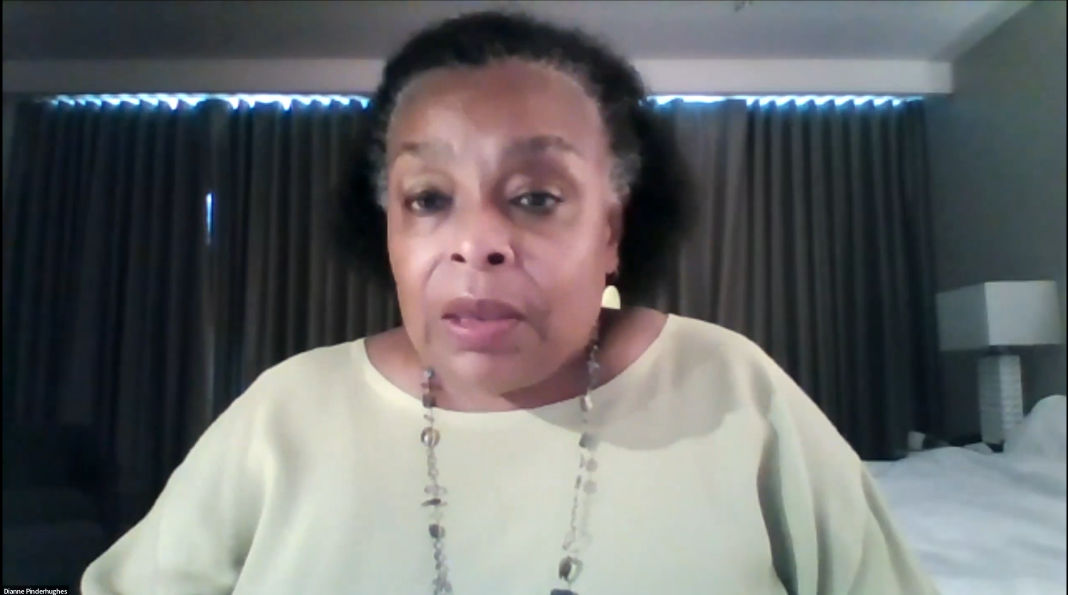 IPSA President Dianne Pinderhughes chaired the online workshop, Nation States at Risk: What Role for Scholarly Associations, with the participation of four distinguished scholars: Dr. Deborah Avant (University of Denver, ISA President); Sir Peter Gluckman (University of Auckland, ISC President); Dr. John Ishiyama (University of North Texas, APSA President) and Prof. Dr. Marianne Kneuer (TU Dresden, IPSA Past President). Dr. Pinderhughes introduced the speakers and invited them to explain how their organizations approach current crises, including climate change, the war in Ukraine and the COVID-19 pandemic, as well as political instabilities in nation states.
IPSA President Dianne Pinderhughes chaired the online workshop, Nation States at Risk: What Role for Scholarly Associations, with the participation of four distinguished scholars: Dr. Deborah Avant (University of Denver, ISA President); Sir Peter Gluckman (University of Auckland, ISC President); Dr. John Ishiyama (University of North Texas, APSA President) and Prof. Dr. Marianne Kneuer (TU Dresden, IPSA Past President). Dr. Pinderhughes introduced the speakers and invited them to explain how their organizations approach current crises, including climate change, the war in Ukraine and the COVID-19 pandemic, as well as political instabilities in nation states.
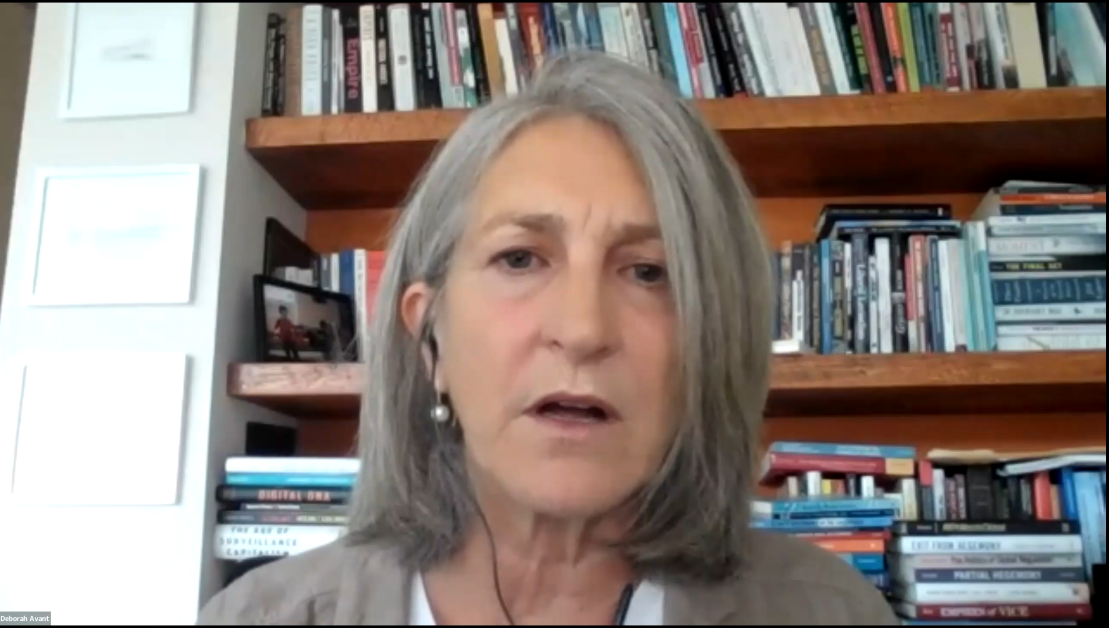 The first speaker, ISA President Deborah Avant, stressed that it has been challenging for professional political science associations to grapple with global stressors and navigate the world, and she went on to discuss the “ISA in the World” initiative launched during her presidency. The main objectives of this initiative were to rethink the organization’s public presence, ensure that its values and actions are coherent, and enable its 7,000-plus members to participate in ISA’s academic activities.
The first speaker, ISA President Deborah Avant, stressed that it has been challenging for professional political science associations to grapple with global stressors and navigate the world, and she went on to discuss the “ISA in the World” initiative launched during her presidency. The main objectives of this initiative were to rethink the organization’s public presence, ensure that its values and actions are coherent, and enable its 7,000-plus members to participate in ISA’s academic activities.
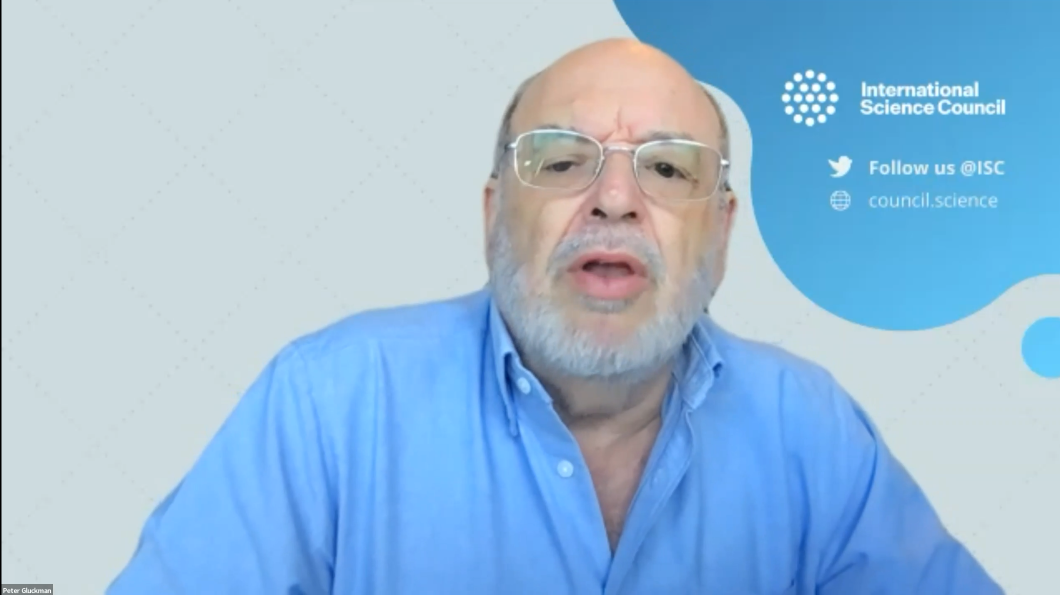 The second speaker, ISC President Peter Gluckman, reminded the audience that ISC’s mission is to become a global voice for science. One of its priorities is to foster relations with the UN and its agencies, including the World Health Organization (WHO) and the United Nations Development Program (UNDP). Sir Gluckman pointed out that there is a danger of over-competition and confusion in the international science space, and the ISC’s role is to shape and coordinate science, adding that, in today’s rapidly changing world, social cohesion and political polarization pose a pre-eminent challenge.
The second speaker, ISC President Peter Gluckman, reminded the audience that ISC’s mission is to become a global voice for science. One of its priorities is to foster relations with the UN and its agencies, including the World Health Organization (WHO) and the United Nations Development Program (UNDP). Sir Gluckman pointed out that there is a danger of over-competition and confusion in the international science space, and the ISC’s role is to shape and coordinate science, adding that, in today’s rapidly changing world, social cohesion and political polarization pose a pre-eminent challenge.
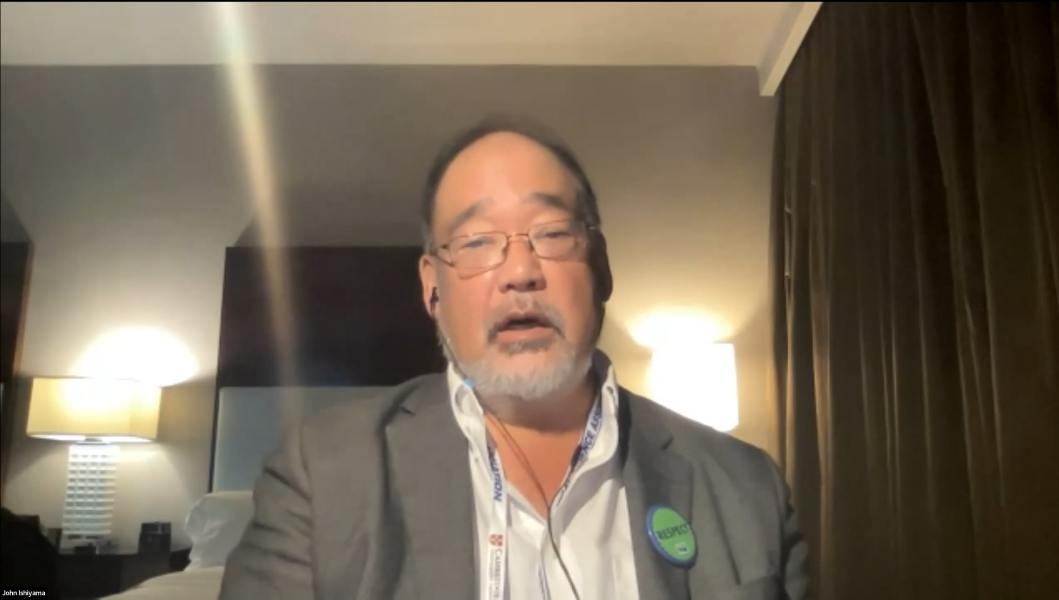 APSA President John Ishiyama stated that APSA’s bylaws prevent it from performing advocacy work at events not directly related to academic freedom and the protection of political scientists and political science. Although the organization’s activism is limited, its goal is to make it easier for APSA members to address these issues through research and teaching, specifically in the form of webinars or workshops, Dr. Ishiyama added. APSA also sponsored several events to address systematic racism and provide a forum for its scholars to communicate and educate broader audiences.
APSA President John Ishiyama stated that APSA’s bylaws prevent it from performing advocacy work at events not directly related to academic freedom and the protection of political scientists and political science. Although the organization’s activism is limited, its goal is to make it easier for APSA members to address these issues through research and teaching, specifically in the form of webinars or workshops, Dr. Ishiyama added. APSA also sponsored several events to address systematic racism and provide a forum for its scholars to communicate and educate broader audiences.
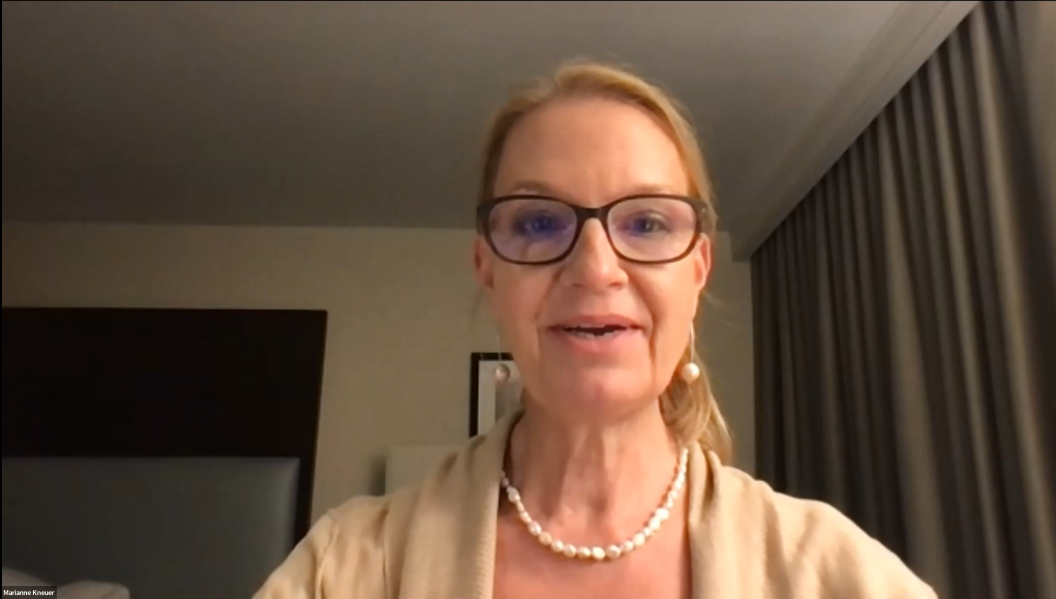 The last speaker, IPSA Past President Marianne Kneuer, stated that illiberalism and anti-democratic movements represent a rising threat to democracies and a considerable challenge to political science as a discipline and to political science associations. We are in the midst of an “epistemic crisis,” she added, with media freedoms being curtailed and governments engaging in disinformation in response to the COVID-19 pandemic. She reminded the audience that IPSA has a mission to build bridges between scholarly communities in states under threat by the rise in disinformation and that current issues, including academic freedom and freedom of speech, can be addressed within a cooperative framework.
The last speaker, IPSA Past President Marianne Kneuer, stated that illiberalism and anti-democratic movements represent a rising threat to democracies and a considerable challenge to political science as a discipline and to political science associations. We are in the midst of an “epistemic crisis,” she added, with media freedoms being curtailed and governments engaging in disinformation in response to the COVID-19 pandemic. She reminded the audience that IPSA has a mission to build bridges between scholarly communities in states under threat by the rise in disinformation and that current issues, including academic freedom and freedom of speech, can be addressed within a cooperative framework.
You can watch the full event video below:











